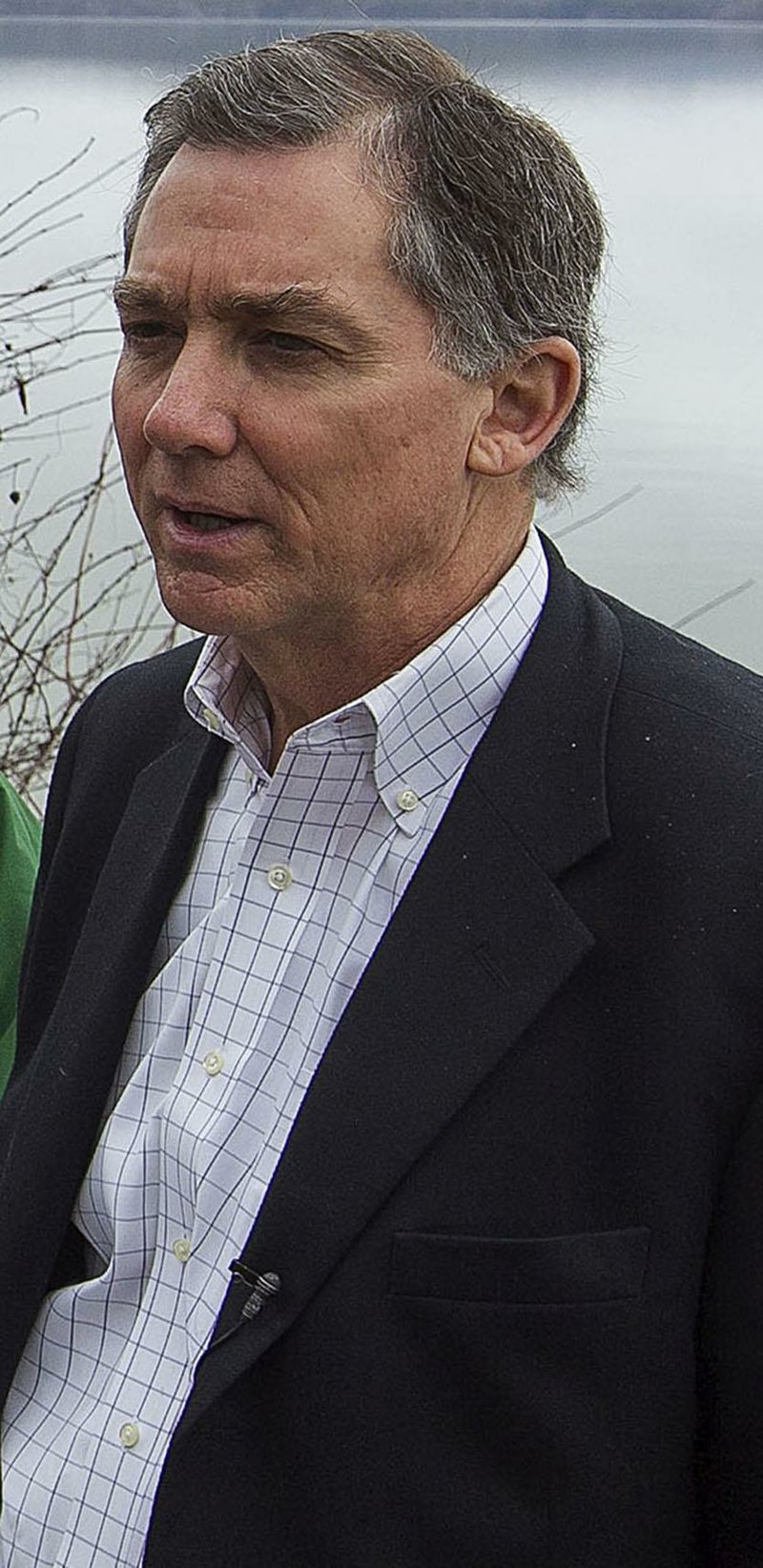WASHINGTON -- With as much as $150 billion flowing to Iran under a deal restricting the country's nuclear capabilities, U.S. Rep. French Hill said he wants more details about where the money can go and how it can be spent.
Hill, a Republican from Little Rock, and the other members of the House Financial Services Committee Task Force to Investigate Terrorist Financing, questioned a panel of experts Wednesday about what Iran might do with the money and whether the United States could put restrictions back if Iran violates the agreement.
Earlier this month the United States, several other world powers and Iran completed negotiations on lifting some economic sanctions in exchange for restrictions to Iran's nuclear program. Congress has less than 60 days to consider and vote on the measure.
Since the takeover of the U.S. Embassy in Tehran in 1979, the United States has imposed restrictions on various aspects of trade and financial interactions in Iran. Those sanctions have been expanded repeatedly since then to include a ban on trade, investment and financial transfers to or from the country.
Under the deal negotiated this year, some sanctions would be lifted gradually as Iran proves to the International Atomic Energy Agency it has scaled down its nuclear capabilities. One panelist said Wednesday that he expects that to occur within the next year.
Several House and Senate committees are holding hearings on the Iran deal this week and House members attended a private briefing with the lead U.S. negotiators, including Secretary of State John Kerry, on Wednesday afternoon.
Hill said that despite the briefing with Kerry, he has several questions about what the influx of money into Iran's economy might mean.
"Iran has great domestic financial needs that have gone wanting because of sanction constraints and they are the leading financier of terrorism in the world, so the issue of how that money is freed up, when and in what quantities is super important to the parties, to the negotiation and to those people concerned about that money being put to ill purposes," Hill said in an interview before the hearing.
Exactly how much money would be released as sanctions are lifted is unclear. Congressmen and hearing witnesses said the amount could be between $100 billion and $150 billion.
Hill said the task force has found that even a little money can do a lot of damage.
"Terrorism, we've seen, is not an expensive proposition. It's only a few millions of dollars that back Hezbollah in Syria and Lebanon and Hamas in the West Bank, and the drug cartel operations in Latin America. It's not billions, it's certainly in the millions of dollars that's being spent to fuel terrorism in these other states."
Mark Dubowitz, executive director of the Foundation for Defense of Democracies, told task force members that even if Iran spends just a small amount of the sanctions relief on terrorism, that still means terrorists have a greater capacity to hurt people. The Washington think tank focuses on foreign policy and national security.
Dubowitz said his concern is that Iranians will use the money to shore up their economy and make it harder to damage or restrict it through future sanctions if Iran violates the agreement.
"They don't want to be in a position again where their economy is fragile," Dubowitz said. "Economic resiliency is their rainy-day fund."
Richard Nephew, program director of the Center on Global Energy Policy at Columbia University, downplayed concerns about the influx, calling estimates of its effect "overblown."
Nephew was the U.S.'s lead sanctions negotiator on the Iran deal in 2013 and 2014 when he was principal deputy coordinator for sanctions policy at the State Department.
"Any negative consequences can be managed," Nephew said. "The deal reached satisfies the two most important U.S. national security objectives for Iran's nuclear program."
Nephew said the $100 billion to $150 billion figure represents Iran's reserves worldwide, including foreign currency and gold within Iran that it cannot easily use because its banks aren't allowed to transfer funds to international banks.
He said the amount in foreign banks is largely in China (as much as 30 percent) and Japan (as much as 20 percent), with the rest in Korea, India and Turkey and only small amounts in European banks.
The money is largely from the sale of Iranian oil, and the country's economy has been crippled without it, Nephew said.
"This is Iranian money that we have been restricting from them that they have not been able to use," Nephew said. "The bottom line is the Iranians do have a lot of things they need to do with this money. It is not a gift from the U.S. taxpayers."
He said no deal was possible without lifting some sanctions. The United States has placed sanctions on Iran for several reasons, including human-rights violations and for supporting terrorism. The deal doesn't affect those sanctions, which will remain in place. It is largely the sanctions levied because of the nuclear program that will be lifted, he said.
"It is a blunt reality that Iran was not going to accept major restrictions [and] invasive monitoring on the cheap," Nephew said.
Metro on 07/23/2015

